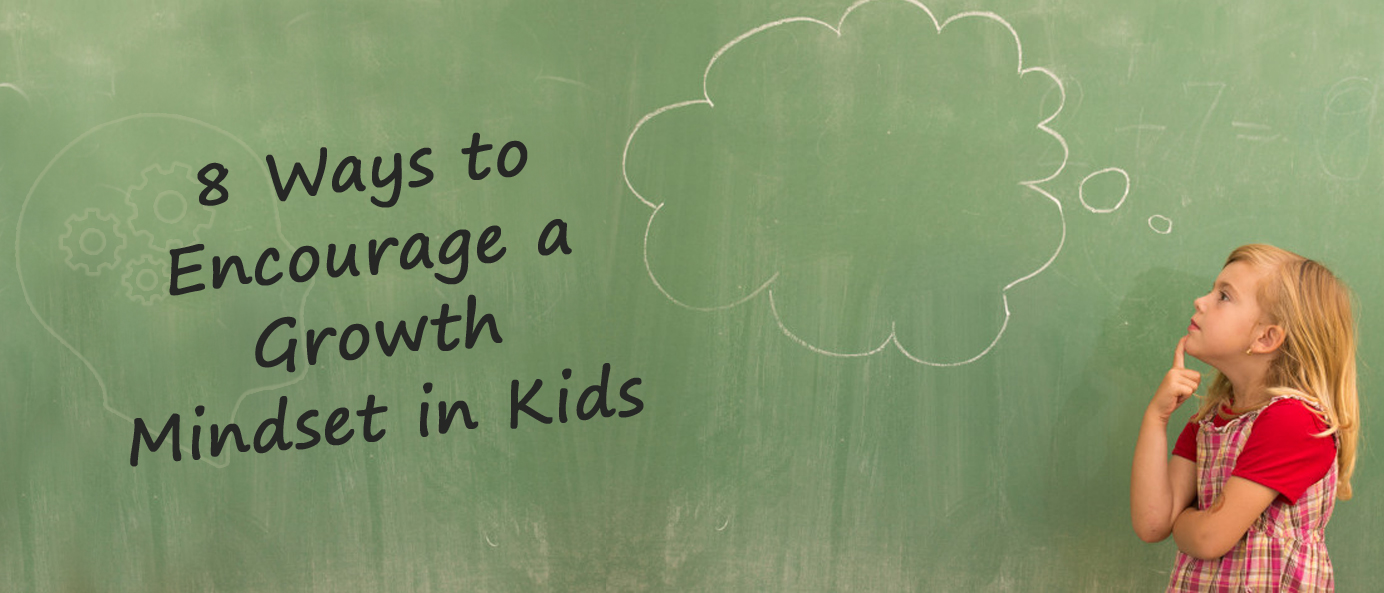
Jan 30, 2020
8 ways to encourage a growth mindset in kids
Of all the topics I’ve written about over the years, how to foster a growth mindset in our children is probably the one that has generated the most positive feedback.
And this is the piece that has had the biggest impact on my parenting. I have the poster above tacked to the wall in our kitchen. And I often find my boys rolling their eyes at me in the backseat of the car after I remind them yet again that their brains grow and learn by effort, practice and hard work (“We KNOW Mum! You already told us.).
Fixed versus growth mindsets
Dr. Carol Dweck, a professor of psychology at Stanford University and author of the book Mindset: The New Psychology of Success, studies mindset in children. She believes children are similar to adults in that they have one of two possible mindsets—a fixed mindset or a growth mindset .
Kids with a fixed mindset believe they're 'smart' or 'dumb', talented at something: painting, music or football, or not. They may believe the world is made of some gifted people, whom the rest admire from the sidelines. Conversely, kids with a growth mindset appreciate anyone can build themselves into anything they want to be. They recognise that people aren't 'smart' or 'dumb', that there are no talented geniuses; only hard-working people who have chosen to take their abilities to the next level.
Dweck’s research shows that students’ beliefs about intelligence play an important role in their school achievement, engagement, and happiness. We found that students’ mindsets—how they perceive their abilities—played a key role in their motivation and achievement, and we found that if we changed students’ mindsets, we could boost their achievement. Students who believed their intelligence could be developed (a growth mindset) outperformed those who believed their intelligence was fixed (a fixed mindset).
Mindset and school performance
While most kids sail through adolescence, a significant proportion disengage from school and with that comes a decline in academic results and self-esteem. When Dweck and her team explored the role of mindset belief in adolescents they found that even when students on both ends of the fixed- versus growth-mindset continuum showed equal intellectual ability, their beliefs predicted their school performance.
In one study, Dweck compared two groups of 12-13 year-olds entering high school who been assessed as having either fixed or growth mindsets. The growth-mindset group improved their maths scores over the course of the study, whereas the fixed-mindset group showed poor motivation and a decline in grades.
In a second study, Dweck’s team reversed the decline in maths scores by staging a simple intervention—students were coached on growth versus fixed mindsets. They were told that every time they learn something new their brain forms new connections, and that over time their intellectual abilities can be developed. A control group was taught study skills. After the training, the control group continued to show declining grades, but remarkably, the growth-mindset group showed a significant upsurge in their motivation to learn and their grades.
How to praise the right way
One key to coaching mindset beliefs in children lies in how parents and teachers praise and motivate children .
"Many of the things we do to motivate our kids are sapping their desire to learn," says Dweck.
It was once thought telling children how smart they are would give them confidence in their abilities, the desire to learn, and the hardiness to withstand difficulty.
"The self-esteem movement got it wrong. Praising children’s intelligence may boost their confidence for a brief moment, but by fostering the fixed view of intelligence, it makes them afraid of challenges, it makes them lose confidence when tasks become hard, and it leads to plummeting performance in the face of difficulty"
Research shows that praising the process—children’s effort or strategies—creates eagerness for challenges, persistence in the face of difficulty, and enhanced performance.
"What we’ve found in study after study is that ability-praise backfires. Emphasising effort gives a child a variable that they can control. They come to see themselves as in control of their success. Emphasising natural intelligence takes it out of the child’s control, and it provides no good recipe for responding to a failure."
8 tips for promoting a growth mindset in kids:
- Help children understand that the brain works like a muscle, that can only grow through hard work, determination, and lots and lots of practice.
- Don’t tell students they are smart, gifted, or talented, since this implies that they were born with the knowledge, and does not encourage effort and growth.
- Let children know when they demonstrate a growth mindset.
- Praise the process. It’s effort, hard work, and practice that allow children to achieve their true potential.
- Don’t praise the results. Test scores and rigid ways of measuring learning and knowledge limit the growth that would otherwise be tapped.
- Embrace failures and missteps. Children sometimes learn the most when they fail. Let them know that mistakes are a big part of the learning process. There is nothing like the feeling of struggling through a very difficult problem, only to finally break through and solve it! The harder the problem, the more satisfying it is to find the solution.
- Encourage participation and collaborative group learning. Children learn best when they are immersed in a topic and allowed to discuss and advance with their peers.
- Encourage competency-based learning. Get kids excited about subject matter by explaining why it is important and how it will help them in the future. The goal should never be to get the ‘correct’ answer, but to understand the topic at a fundamental, deep level, and want to learn more. Interested in learning Carol Dweck’s latest thoughts on fostering growth mindsets in children? Click here to read Carol Dweck Revisits the ‘Growth Mindset’ in which she makes the following comments:
Recently, someone asked what keeps me up at night. It’s the fear that the mindset concepts, which grew up to counter the failed self-esteem movement, will be used to perpetuate that movement.
How can we help educators adopt a deeper, true growth mindset, one that will show in their classroom practices? You may be surprised by my answer: Let’s legitimize the fixed mindset. Let’s acknowledge that (1) we’re all a mixture of fixed and growth mindsets, (2) we will probably always be, and (3) if we want to move closer to a growth mindset in our thoughts and practices, we need to stay in touch with our fixed-mindset thoughts and deeds.
If we “ban” the fixed mindset, we will surely create false growth-mindsets. (By the way, I also fear that if we use mindset measures for accountability, we will create false growth mindsets on an unprecedented scale.) But if we watch carefully for our fixed-mindset triggers, we can begin the true journey to a growth mindset.
As a parent or teacher what triggers YOUR fixed mindset?
Dweck also offers the following advice for educators and parents when considering our OWN fixed mindset triggers.
- Watch for a fixed-mindset reaction when you face challenges. Do you feel overly anxious, or does a voice in your head warn you away?
- Watch for it when you face a setback in your teaching or parenting, or when children aren’t listening or learning. Do you feel incompetent or defeated? Do you look for an excuse?
- Watch to see whether criticism or complaints bring out your fixed mindset. Do you become defensive, angry, or crushed instead of interested in learning from the feedback?
- Watch what happens when you see another parent or teacher who’s better than you at something you value. Do you feel envious and threatened, or do you feel eager to learn?
- Accept those thoughts and feelings and work with and through them. And keep working with and through them.
- Remember, you’re on a growth-mindset journey, too.
